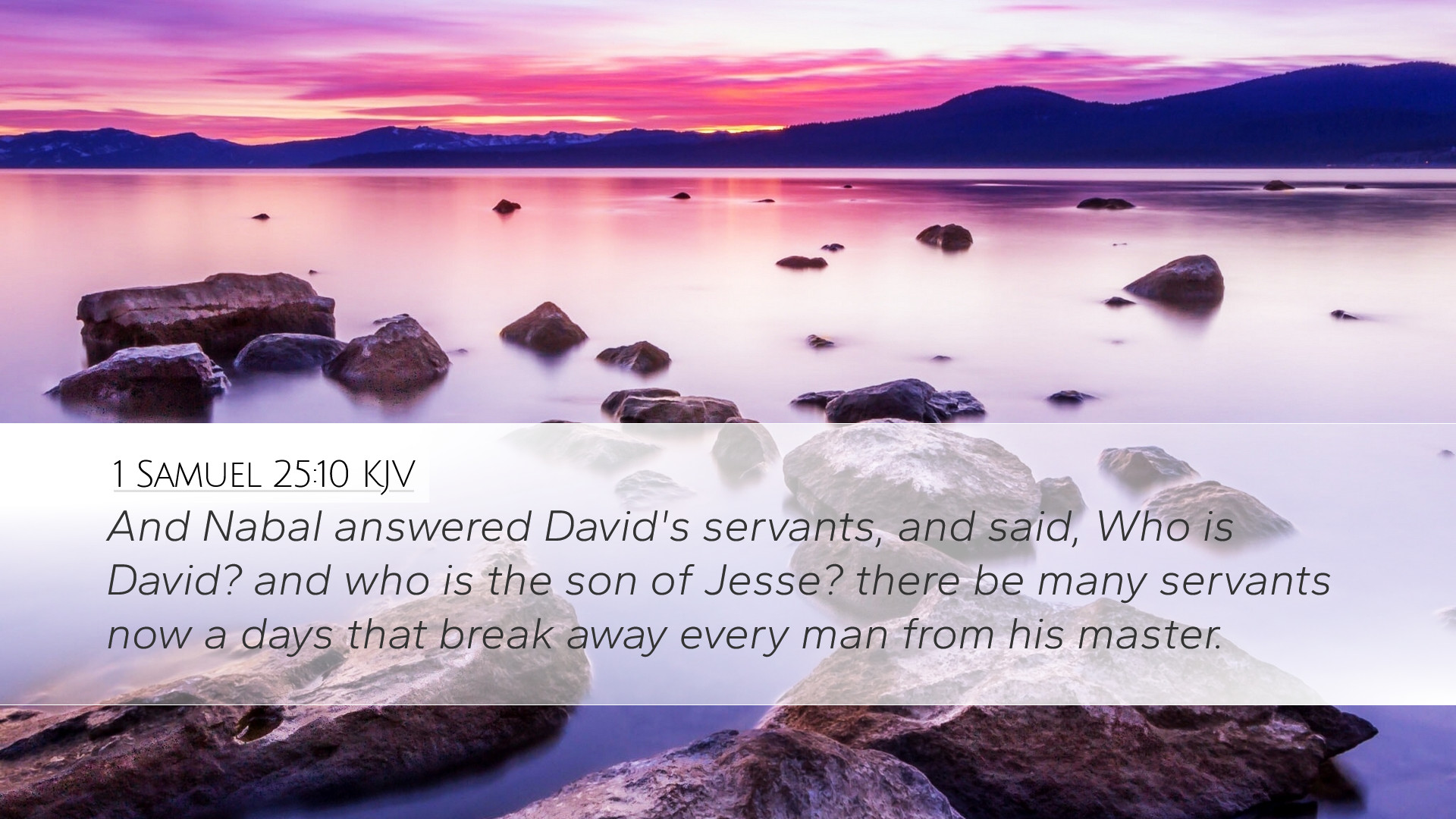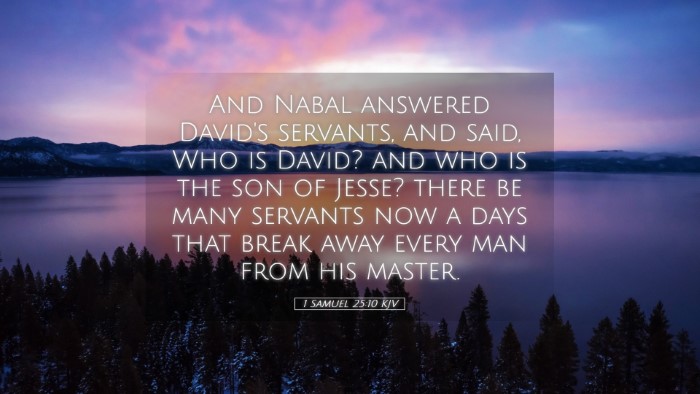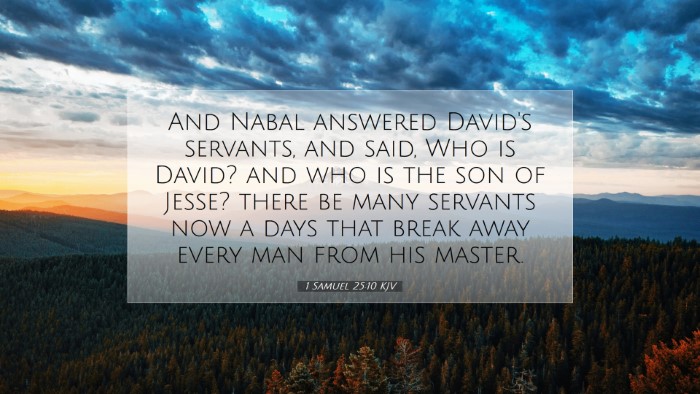Commentary on 1 Samuel 25:10
Verse: "And Nabal answered David's servants, and said, Who is David? and who is the son of Jesse? there be many servants nowadays that break away every man from his master."
Introduction
This passage from 1 Samuel 25:10 reveals a critical moment in the interaction between David and Nabal, illustrating themes of honor, respect, and the consequences of human folly. In this commentary, we delve into insights from respected public domain commentaries including those of Matthew Henry, Albert Barnes, and Adam Clarke to provide a comprehensive analysis beneficial for pastors, students, theologians, and Bible scholars.
Contextual Background
To understand the gravity of Nabal's words, one must consider the context. David, currently evading King Saul's relentless pursuit, had established his own company of followers, living in the wilderness. Nabal, a wealthy man from Maon, was known for his harshness and folly. David's situation necessitated mutual assistance, and as a gesture of goodwill, he sent messengers to Nabal requesting provisions for his men during sheep-shearing, a time of feasting and abundance.
Nabal's Response
Nabal's response, encapsulated in 1 Samuel 25:10, reveals much about his character:
- Disrespect towards David: Nabal's question, "Who is David?" indicates a profound contempt for David's status and reputation. As Barnes notes, this illustrates an ignorance of David’s rising prominence and past exploits.
- Challenge of Authority: Nabal dismisses the legitimacy of David's claim to respect. This reflects a broader societal perspective on loyalty and authority, particularly as it relates to servants breaking away from their masters. Clarke emphasizes the importance of loyalty in human relationships, hinting at Nabal's own failures as a leader.
Theology of Honor and Respect
This interaction not only exposes Nabal's character but also highlights critical theological themes related to honor and respect. Henry points out that Nabal's irreverence illustrates a common attitude of people who are blind to God’s workings in the lives of others. By failing to recognize David, he not only dishonors anointed authority but also invites calamity upon himself and his household.
The Implications of Nabal's Folly
Nabal's words have far-reaching implications. His dismissal of David leads to serious consequences, showcasing biblical principles concerning human arrogance:
- Folly and Downfall: As Adam Clarke remarks, Nabal's foolishness sets him on a path to destruction. The narrative indicates a principle where lack of wisdom not only harms oneself but can also endanger those around.
- Mercy and Retribution: David, initially provoked by Nabal's insult, contemplates vengeance. However, through the intercession of Abigail, Nabal's wise wife, the path towards mercy rather than retaliation is explored. This veering from vengeance resonates with New Testament themes of grace and redemption.
Lessons for Leaders and Believers
Nabal's example serves as a cautionary tale for both leaders and followers in spiritual contexts:
- The Call for Discerning Honor: Leaders are reminded of the importance of discerning the value of those around them, especially those whom God has placed in positions of influence.
- Recognition of Divine Authority: This scenario reinforces the theology that one must recognize and respect God's anointed. Believers are encouraged to uphold spiritual authority and act with wisdom and deference.
- The Role of Intercession: Abigail's intervention illustrates the powerful outcome of wise counsel and peacemaking in the face of conflict.
Conclusion
1 Samuel 25:10 stands as an insightful catalyst for reflection on human relationships, authority, and the profound consequences of our words and actions. Nabal's folly underscores the vital need for respect and wisdom in navigating life's challenges. For pastors, students, and scholars, this passage encourages the pursuit of discernment, honoring God’s servants, and the transformative power of mercy and wise intervention in confrontational situations.


